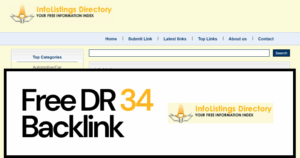Are you ready to take your SEO strategy to the next level? Creating a content calendar for SEO is a game-changer when it comes to boosting your online visibility and driving organic traffic to your website. In this comprehensive guide, we will delve into the importance of a content calendar for SEO, exploring its benefits and the impact of consistent content scheduling on search engine optimization. You’ll learn the essential steps to develop a content calendar tailored for SEO, from researching relevant keywords to setting up a strategic schedule for content creation and publication. We’ll also cover the best practices for SEO optimization within the content calendar, including incorporating long-tail keywords, utilizing meta tags and descriptions, and implementing effective linking strategies. But that’s not all – we’ll also discuss measuring the effectiveness of your content calendar on SEO, optimizing it for mobile SEO, integrating social media strategies, and scaling and automating your content calendar without compromising on quality. Get ready to revolutionize your SEO game with a well-crafted content calendar that drives lasting results.
Understanding the Importance of Content Calendar for SEO
Using a content calendar for SEO can bring about a wide range of benefits. It helps in organizing the content creation process, ensuring that there is a consistent flow of high-quality content that is relevant to the target audience. This, in turn, can have a positive impact on SEO by improving website visibility, increasing organic traffic, and enhancing user engagement.
Consistent content scheduling is crucial for SEO success. A content calendar allows for strategic planning and distribution of content, ensuring that there is a steady stream of fresh, relevant material for search engines to index. This can help in boosting the website’s rankings for targeted keywords, as search engines tend to favor websites that regularly publish high-quality, informative content.
Furthermore, a content calendar can aid in keyword optimization. By planning content in advance, businesses can align their topics with relevant keywords and strategically incorporate them into their content. This approach can help in improving keyword rankings and driving more organic traffic to the website, ultimately contributing to a stronger SEO presence.
Steps to Develop a Content Calendar for SEO
The first step in creating a content calendar for SEO is to conduct thorough research on relevant keywords. This involves identifying high-traffic keywords and long-tail keywords that are related to your business or industry. By understanding the keywords that your target audience is searching for, you can tailor your content to align with their interests and boost your SEO performance.
Once you have gathered a list of relevant keywords, the next step is to organize content themes and topics in the calendar. This involves categorizing your content based on the keywords identified and planning out the type of content that will be created for each keyword. This process helps in ensuring that your content is well-structured and aligned with your SEO strategy.
After organizing the content themes and topics, the final step is to set up a schedule for content creation and publication. This includes determining the frequency of content production, assigning responsibilities to team members, and establishing deadlines for content delivery. By adhering to a consistent content schedule, you can maintain a steady flow of fresh and optimized content that will positively impact your SEO efforts.
Tools and Resources for Creating a Content Calendar
When it comes to creating a content calendar for SEO, having the right tools and resources can make all the difference. Utilizing SEO-friendly content management platforms can streamline the process of organizing and scheduling your content. These platforms often come equipped with features that allow you to optimize your content for search engines, making it easier to create SEO-friendly content.
In addition to content management platforms, utilizing keyword research and analysis tools is essential for creating a content calendar that is optimized for SEO. These tools can help you identify relevant keywords and topics that will resonate with your target audience. By incorporating high-ranking keywords into your content calendar, you can increase the likelihood of your content being discovered by search engine users.
content scheduling and publishing software is also a valuable resource for creating a content calendar for SEO. These tools allow you to plan and schedule your content in advance, ensuring that you maintain a consistent publishing schedule. By staying organized and consistent with your content scheduling, you can improve your SEO efforts and attract more traffic to your website.
Best Practices for SEO Optimization in Content Calendar
Incorporating long-tail keywords in the content calendar is crucial for SEO optimization. By strategically planning and scheduling content that targets specific long-tail keywords, you can increase the likelihood of ranking higher in search engine results. This involves conducting keyword research to identify relevant long-tail keywords that have lower competition but higher conversion potential. Once identified, these keywords can be integrated into the content calendar to guide the creation of SEO-friendly content.
Utilizing Meta tags and descriptions within the content calendar is another best practice for SEO optimization. Meta tags and descriptions provide search engines with information about the content on your website. By optimizing these elements with relevant keywords and compelling descriptions, you can improve the chances of your content being discovered by users who are searching for related topics. Incorporating meta tags and descriptions into your content calendar ensures that each piece of content is optimized for search engines from the planning stage itself.
Linking strategies within the content calendar are also essential for SEO. internal linking between related content can help search engines understand the structure and hierarchy of your website, as well as the relevance of different pages. By strategically planning internal links within the content calendar, you can improve the overall SEO performance of your website. Additionally, incorporating backlinking strategies into the content calendar can help to build authority and credibility, further enhancing the SEO optimization of your content.
Measuring the Effectiveness of Content Calendar on SEO
Measuring the effectiveness of a content calendar on SEO involves tracking keyword rankings and organic traffic. By analyzing the changes in keyword rankings over time, you can determine the impact of your content calendar on search engine visibility. Similarly, monitoring organic traffic can help you understand how your content calendar is driving traffic to your website and improving its visibility in search engine results pages.
Another crucial aspect of measuring the effectiveness of a content calendar on SEO is analyzing user engagement and bounce rates. By examining user behavior metrics such as time on page, pages per session, and bounce rates, you can gain insights into how your content is resonating with your audience. A well-planned content calendar should aim to reduce bounce rates and increase user engagement, ultimately contributing to improved SEO performance.
Utilizing SEO analytics tools to evaluate content performance is essential for measuring the effectiveness of a content calendar on SEO. Tools such as Google Analytics, SEMrush, and Moz can provide valuable data on organic traffic, keyword rankings, and user engagement. By regularly reviewing and analyzing these metrics, you can make informed decisions about the effectiveness of your content calendar and identify areas for improvement to enhance your SEO strategy.
Content Calendar Optimization for Mobile SEO
When optimizing a content calendar for mobile seo, it is crucial to consider the mobile-friendliness of the content. This includes ensuring that the content is easily accessible and readable on mobile devices, as well as optimizing for mobile-specific search queries. Mobile SEO requires a different approach compared to traditional SEO, so the content calendar should be adapted accordingly.
Incorporating local SEO strategies into the content calendar is also essential for mobile optimization. This involves creating content that is relevant to local audiences and optimizing for local keywords. By aligning the content calendar with local SEO strategies, businesses can improve their visibility in local search results and attract mobile users in their target locations.
Another important aspect of content calendar optimization for mobile SEO is the utilization of structured data and schema markup. This helps search engines understand the content of a website, which can lead to enhanced visibility in mobile search results. By integrating structured data and schema markup into the content calendar, businesses can improve their chances of ranking well in mobile search and attracting organic traffic.
Integrating Social Media Strategies in Content Calendar for SEO
When creating a content calendar for SEO, it’s essential to integrate social media strategies to maximize the reach and impact of your content. One key aspect of this integration is scheduling social media posts to coincide with the release of your content. By planning and coordinating social media posts, you can ensure that your content is promoted effectively across various platforms, reaching a wider audience and driving traffic to your website.
In addition to scheduling social media posts, it’s important to utilize social signals for SEO impact. Social signals, such as likes, shares, and comments, can have a positive effect on your content’s search engine rankings. By engaging with your audience on social media and encouraging interaction with your content, you can boost its visibility and relevance, ultimately improving its performance in search results.
Furthermore, incorporating social media analytics into your content calendar can help optimize your strategy and improve your overall SEO efforts. By analyzing the performance of your social media posts, you can gain valuable insights into what type of content resonates with your audience and adjust your content calendar accordingly. This data-driven approach can lead to more effective content promotion, increased website traffic, and ultimately, improved SEO results.
Scaling and Automating Content Calendar for SEO
When it comes to scaling and automating a content calendar for SEO, implementing automation tools for content publishing is crucial. By utilizing scheduling platforms and social media management tools, content can be planned and published in advance, ensuring a consistent flow of optimized content. This not only saves time but also allows for better organization and management of content across various platforms.
Another key aspect of scaling and automating a content calendar for SEO is leveraging AI for content ideation and optimization. AI-powered tools can help in generating content ideas based on trending topics and keywords, as well as optimizing existing content for better search engine visibility. This not only streamlines the content creation process but also ensures that the content is tailored for SEO best practices.
Lastly, strategies for scaling a content calendar without compromising SEO quality are essential. This involves creating a content planner that outlines the content schedule, target keywords, and optimization techniques. By having a well-defined plan in place, it becomes easier to scale the content calendar while maintaining the integrity of SEO efforts. Additionally, regular analysis and optimization of the content calendar can help in identifying opportunities for improvement and ensuring that the content remains aligned with SEO objectives.
Creating Evergreen Content for SEO in the Content Calendar
Evergreen content is crucial for SEO as it provides long-term value to your website. This type of content remains relevant and valuable to readers over an extended period, making it essential for driving consistent traffic to your site. When creating a content calendar for SEO, it’s important to incorporate evergreen topics that will continue to attract visitors and contribute to your site’s authority.
To identify evergreen topics for your content calendar, consider timeless subjects that are unlikely to become outdated. These topics often address fundamental questions or provide comprehensive guides that will remain relevant to your audience. Additionally, you can conduct keyword research to discover popular search queries related to your industry and incorporate those topics into your content calendar.
Optimizing evergreen content involves focusing on high-quality, in-depth articles that thoroughly cover the chosen topic. This includes using relevant keywords, providing valuable information, and ensuring the content is well-structured and easy to navigate. By prioritizing evergreen content in your content calendar, you can establish your website as a valuable resource for both search engines and users, ultimately improving your SEO performance.
Are you tired of spending hours creating and optimizing content for SEO? Say hello to Abun, the ultimate solution for content creators and marketers seeking to automate and optimize their web content. Our platform takes the hassle out of manual content creation and SEO optimization, allowing you to generate high-quality, SEO-optimized content that drives organic traffic to your website. With Abun, you can streamline your workflow and save time while still achieving outstanding results. Sign up for early access now and revolutionize the way you create and optimize content for SEO.
Frequently Asked Questions
1. What is a content calendar?
A content calendar is a tool that helps you plan and organize your content creation and publishing schedule.
2. Why is a content calendar important for SEO?
A content calendar is important for SEO because it allows you to strategically plan and optimize your content to target relevant keywords, improve search engine rankings, and drive organic traffic to your website.
3. How do I create a content calendar for SEO?
To create a content calendar for SEO, start by conducting keyword research to identify relevant keywords and topics. Then, outline your content strategy and set goals. Next, determine the frequency of your content publishing and allocate specific topics to each publishing date. Finally, track and analyze the performance of your content to make data-driven optimizations.
4. What should I include in my content calendar for SEO?
In your content calendar for SEO, you should include the publishing dates, topics or keywords for each piece of content, assigned writers or creators, target audience, content formats, and any relevant SEO optimizations such as meta tags or internal linking.
5. Are there any tools or templates available for creating a content calendar for SEO?
Yes, there are various tools and templates available for creating a content calendar for SEO. Some popular options include Google Sheets, Trello, CoSchedule, and HubSpot’s Content Calendar. These tools provide pre-designed templates and features to help you efficiently plan and manage your content calendar.
Learn how to develop and optimize a content calendar for SEO with our comprehensive guide. Understand the importance of consistent content scheduling and keyword optimization, and discover tools and best practices for creating and measuring the effectiveness of your content calendar. Find out how to integrate social media strategies, scale and automate your content calendar, and create evergreen content for long-term SEO benefits.



